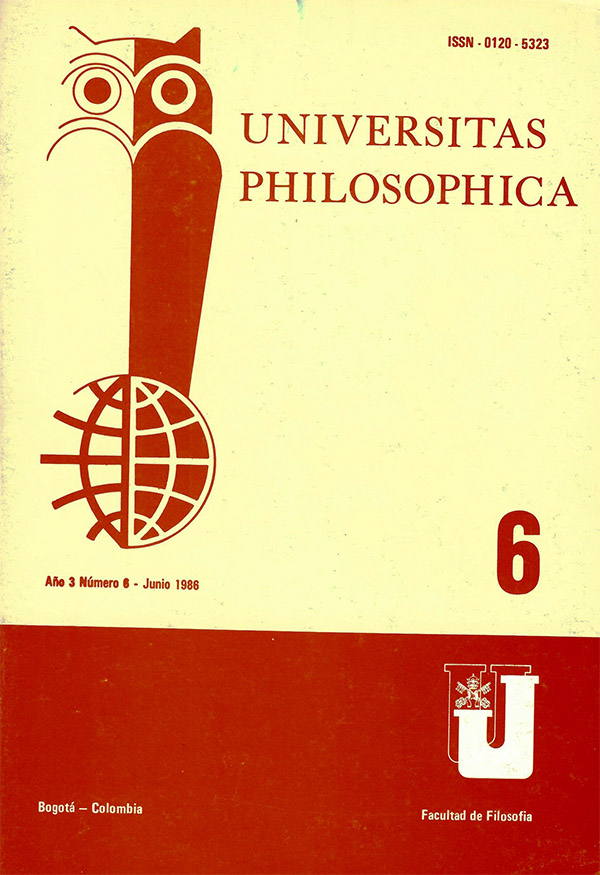Abstract
Pienso, como algunos autores, que el "problema" de la relación alma/cuerpo (espíritu/cuerpo, mente/cuerpo) no es en realidad un auténtico problema filosófico. Pero esta es una conclusión a la que se llega, entre otras consideraciones, tras un examen atento de algunas de las formas más importantes de plantear y tratar el asunto. El texto que sigue hace parte de ese examen y aborda uno de esos planteamientos clásicos. La manera de hacerlo consiste en asumir el punto de vista especulativo e interpretar el camino seguido por Descartes como parte del itinerario que el espíritu sigue en su búsqueda de las verdades fundamentales para re-encontrarse en la coherencia absoluta consigo mismo. Más que un "homenaje" a Hegel, la adopción de ese punto de vista obedece ala convicción de que la argumentación de Descartes se encuentra precisamente orientada en la perspectiva del idealismo especulativo. Pero no justificaré esta convicción en este trabajo.
Al considerar que el "problema alma/cuerpo" no es un auténtico problema filosófico no estoy sugiriendo que no sea considerado como tal hoy en día por algunos filósofos. Basta contemplar algunas de las corrientes de "avanzada" en materia de psicología, filosofía del lenguaje o en la llamada "teoría de la inteligencia artificiar para darse cuenta de que allí se sigue considerando, a pesar de todo, un problema de esta índole.
This journal is registered under a Creative Commons Attribution 4.0 International Public License. Thus, this work may be reproduced, distributed, and publicly shared in digital format, as long as the names of the authors and Pontificia Universidad Javeriana are acknowledged. Others are allowed to quote, adapt, transform, auto-archive, republish, and create based on this material, for any purpose (even commercial ones), provided the authorship is duly acknowledged, a link to the original work is provided, and it is specified if changes have been made. Pontificia Universidad Javeriana does not hold the rights of published works and the authors are solely responsible for the contents of their works; they keep the moral, intellectual, privacy, and publicity rights.
Approving the intervention of the work (review, copy-editing, translation, layout) and the following outreach, are granted through an use license and not through an assignment of rights. This means the journal and Pontificia Universidad Javeriana cannot be held responsible for any ethical malpractice by the authors. As a consequence of the protection granted by the use license, the journal is not required to publish recantations or modify information already published, unless the errata stems from the editorial management process. Publishing contents in this journal does not generate royalties for contributors.


